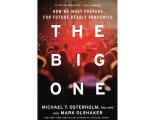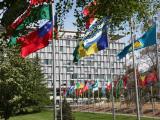Weekly Briefing interviewed pandemic preparedness planners from two Fortune 500 companies to find out how they are using exercises and what they are learning. For both, scenarios changed as the exercise progressed. We present one here. Look for the second one in an upcoming article on designing, conducting, and evaluating tabletop exercises.
Deloitte Touche Tohmatsu
Kevin Goodlin, a senior manager in Deloitte's Global Security Office, chose to conduct a tabletop exercise to find out what the firm's leaders would need to continue operations in a pandemic. Participants were not asked to perform specific tasks, but rather to come up with a list of responses at each stage of the exercise.
Conducted last December, the exercise unfolded in several steps, Goodlin says. A group of 40 regional leaders gathered in the firm's Chicago office and were told in the morning that a pandemic had begun in Indonesia. Throughout the session, participants were advised of new events as they unfolded, which included the pandemic spreading from Indonesia to other global markets where Deloitte has a significant presence; human cases of the H5N1 virus being reported in the United States, reaching epidemic level in certain cities, with only a few people dying; and, getting word that a pandemic was spreading in the country and that the mortality rate was high.
Goodlin said the firm learned that opinions varied widely. The issue of travel provided a compelling example. Some participants wanted to ban international travel to certain countries and ask expatriates to return home. Another group wanted to wait until the company could get confirmation about the situation. Some participants thought it was "crazy" and irresponsible to allow people to travel during a pandemic, while others, including one who had traveled during the outbreak of severe acute respiratory syndrome (SARS), were less worried.
Whether to close offices also drew polarized opinions. Goodlin said some leaders felt that offices should remain open until it was necessary to close them. Others argued that closing an office 5 days early during a time when the office might be closed for 3 to 4 months made little difference.
"This confirmed that a national [firm-wide] policy needs to be set that explains what our response should be," Goodlin says. The firm's next steps include additional tabletop exercises to find gaps in its pandemic plan. Because of the high costs of conducting a full-scale drill of all 40,000 partners and employees in the United States, Goodlin believes that the firm is not likely to do so, but rather, to continue to hold smaller, more focused drills."




















